NYC, find those eclipse glasses: How to watch solar storm flares
NEW YORK - NYC may miss out on the chance to see the northern lights – no thanks to a cloudy forecast – but the unusually large solar storm hitting Earth may produce another visual spectacle for New Yorkers.
It's time to dust off those eclipse! As the sun shines on this fairly cloudless spring day, sunspot flares may be visible as the sun hurls plasma our way.
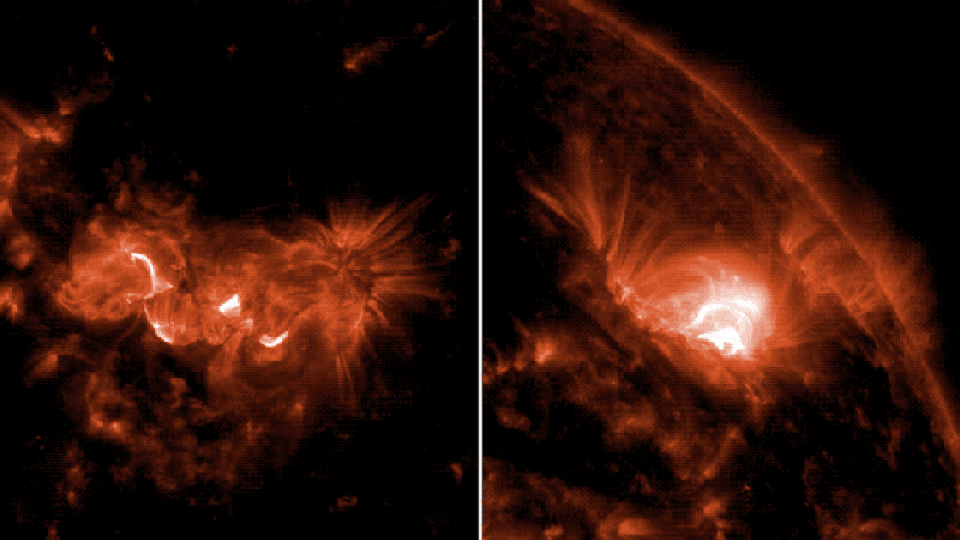
"Some solar phenomenon manifest themselves with spectacular light shows while others are less conspicuous, rewarding careful observers who find themselves in the right place at the right time," according to NASA.
For the latest on the geomagnetic storm:
--Follow @NWSSWPC.
--Visit https://t.co/lIpM5E1Tbf. pic.twitter.com/N4Qg8fPLxZ— NOAA (@NOAA) May 10, 2024
In fact, the sunspots, or "freckles," can be visible on any given clear day. If they're large enough, they look like small dots on the face of the sun.
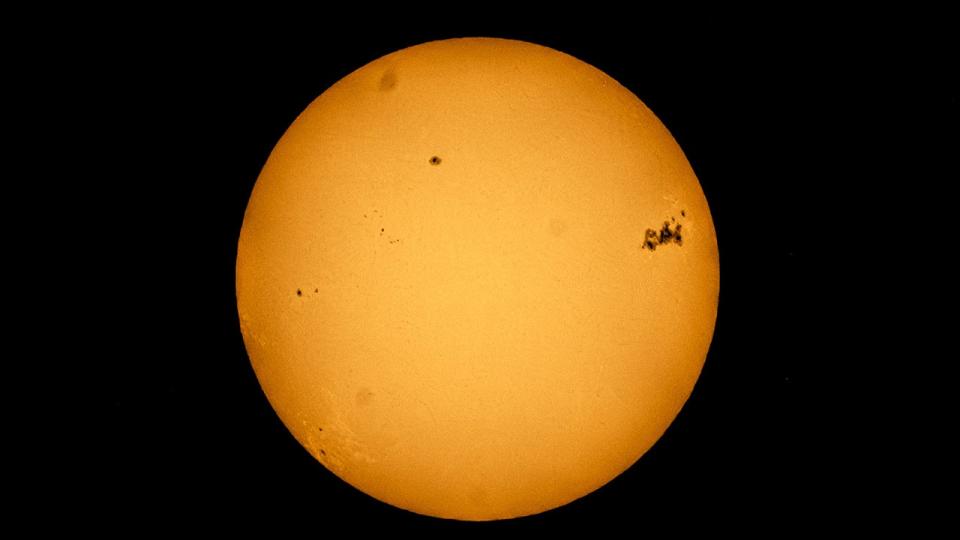
Remember: Never look directly at the sun without protection!

What is a solar storm? Why is this one considered ‘extreme’?
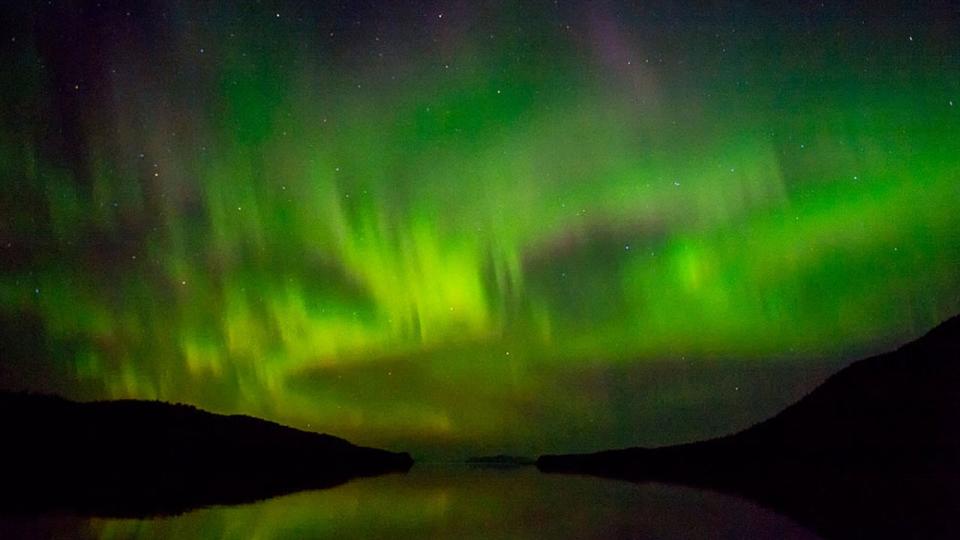
An unusually strong solar storm hitting Earth produced stunning displays of color in the skies across the Northern Hemisphere early Saturday, with no immediate reports of disruptions to power and communications.
The U.S. National Oceanic and Atmospheric Administration issued a rare severe geomagnetic storm warning when a solar outburst reached Earth on Friday afternoon, hours sooner than anticipated. The effects of the Northern Lights, which were prominently on display in Britain, were due to last through the weekend and possibly into next week.
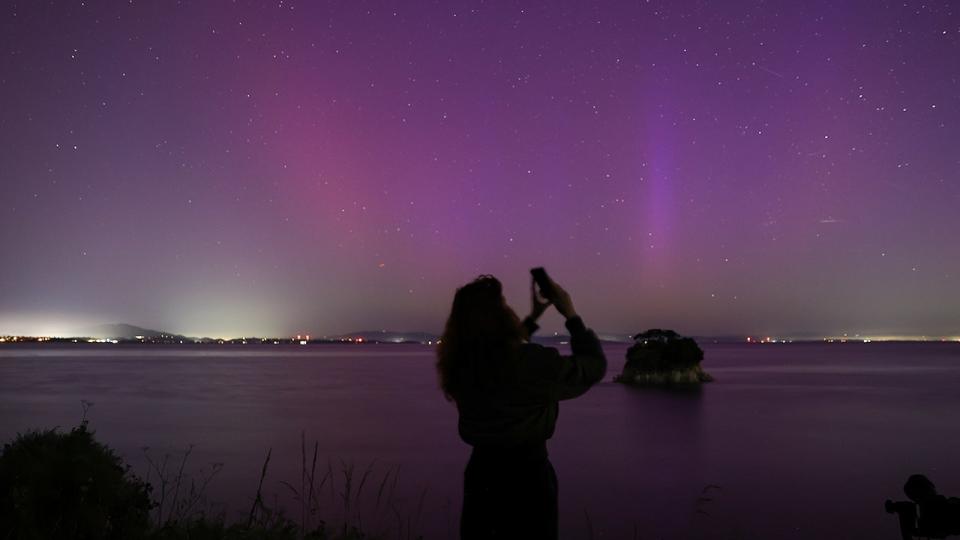
There were sightings "from top to tail across the country," said Chris Snell, a meteorologist at the Met Office, Britain’s weather agency. He added that the office received photos and information from other European locations including Prague and Barcelona.
NOAA alerted operators of power plants and spacecraft in orbit, as well as the Federal Emergency Management Agency, to take precautions.
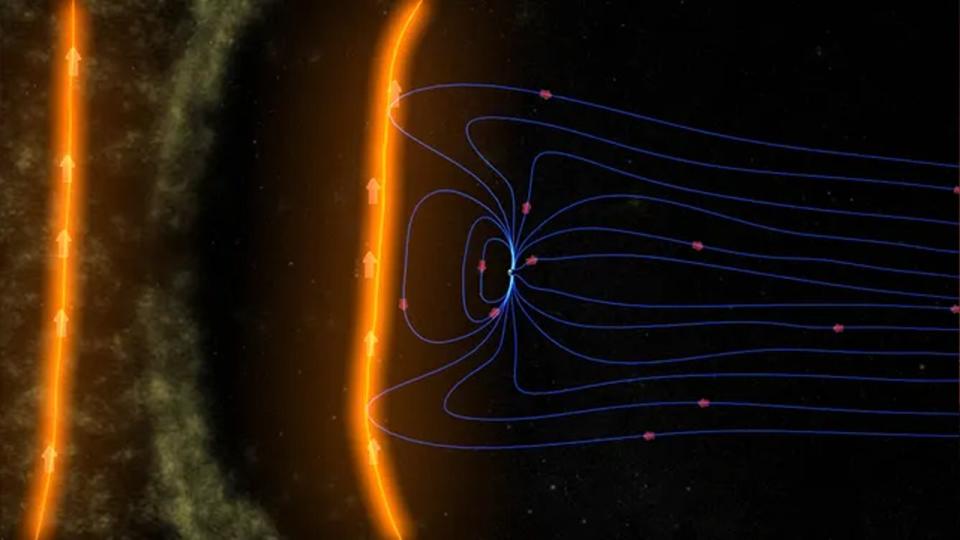
The flares seem to be associated with a sunspot that’s 16 times the diameter of Earth, NOAA said. It is all part of the solar activity ramping up as the sun approaches the peak of its 11-year cycle.
- Associated Press Aerospace Writer Marcia Dunn

